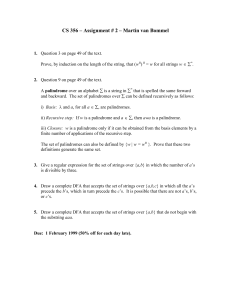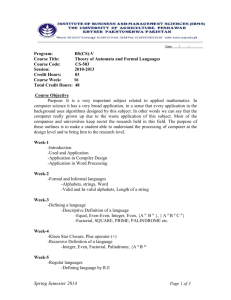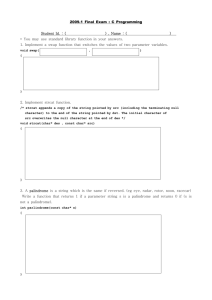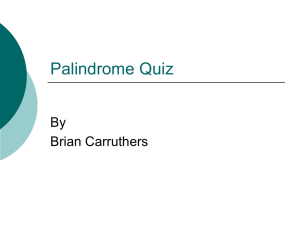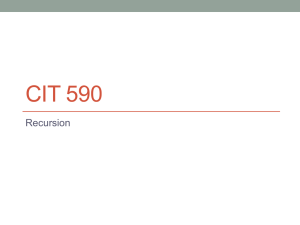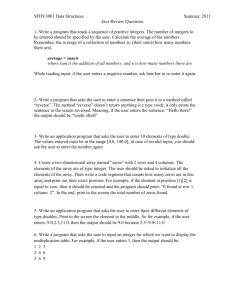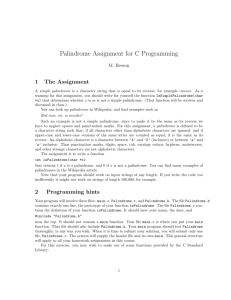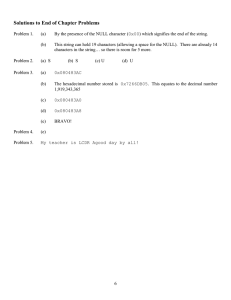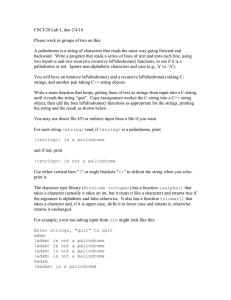CSCI 15 Lab #6 – Template functions/recursion – due 11:59... class day.
advertisement
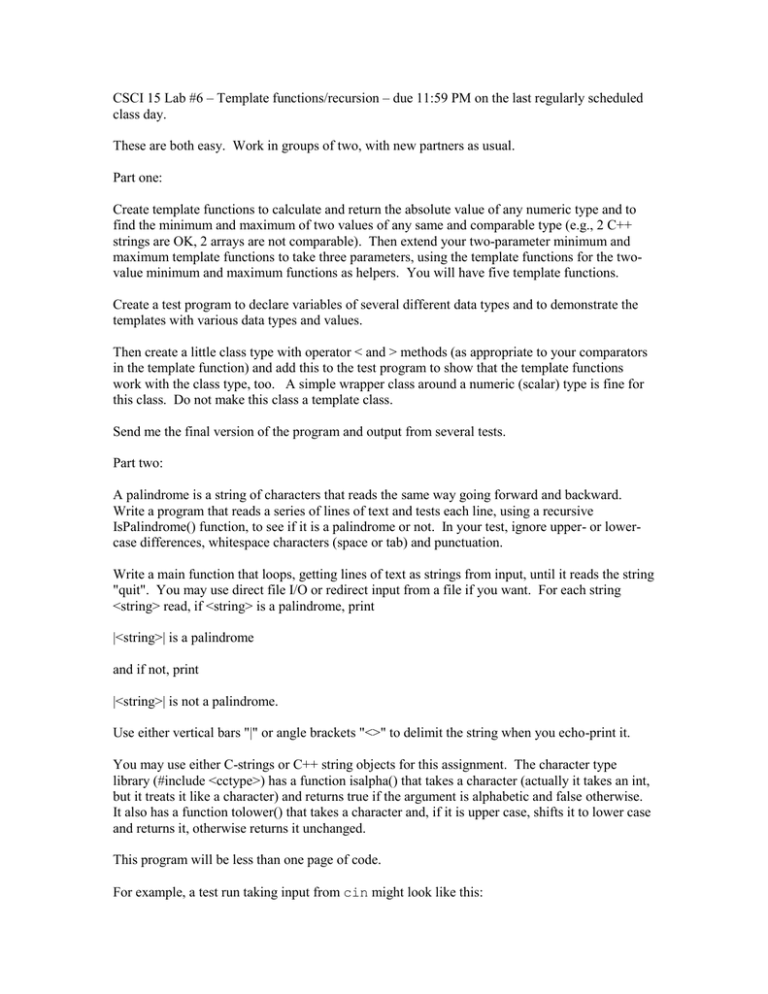
CSCI 15 Lab #6 – Template functions/recursion – due 11:59 PM on the last regularly scheduled class day. These are both easy. Work in groups of two, with new partners as usual. Part one: Create template functions to calculate and return the absolute value of any numeric type and to find the minimum and maximum of two values of any same and comparable type (e.g., 2 C++ strings are OK, 2 arrays are not comparable). Then extend your two-parameter minimum and maximum template functions to take three parameters, using the template functions for the twovalue minimum and maximum functions as helpers. You will have five template functions. Create a test program to declare variables of several different data types and to demonstrate the templates with various data types and values. Then create a little class type with operator < and > methods (as appropriate to your comparators in the template function) and add this to the test program to show that the template functions work with the class type, too. A simple wrapper class around a numeric (scalar) type is fine for this class. Do not make this class a template class. Send me the final version of the program and output from several tests. Part two: A palindrome is a string of characters that reads the same way going forward and backward. Write a program that reads a series of lines of text and tests each line, using a recursive IsPalindrome() function, to see if it is a palindrome or not. In your test, ignore upper- or lowercase differences, whitespace characters (space or tab) and punctuation. Write a main function that loops, getting lines of text as strings from input, until it reads the string "quit". You may use direct file I/O or redirect input from a file if you want. For each string <string> read, if <string> is a palindrome, print |<string>| is a palindrome and if not, print |<string>| is not a palindrome. Use either vertical bars "|" or angle brackets "<>" to delimit the string when you echo-print it. You may use either C-strings or C++ string objects for this assignment. The character type library (#include <cctype>) has a function isalpha() that takes a character (actually it takes an int, but it treats it like a character) and returns true if the argument is alphabetic and false otherwise. It also has a function tolower() that takes a character and, if it is upper case, shifts it to lower case and returns it, otherwise returns it unchanged. This program will be less than one page of code. For example, a test run taking input from cin might look like this: Enter strings, "quit" to quit adam |adam| is not a palindrome madam |madam| is a palindrome Madam, I'm Adam. |Madam, I'm Adam.| is a palindrome A man, a plan, a canal, Panama! |A man, a plan, a canal, Panama!| is a palindrome not a palindrome |not a palindrome| is not a palindrome quit Hints: The client will just pass the string by reference. The function should use a recursive helper that takes the string by reference and the low and high indices of the part to examine. If the low and high indices are the same, or low is higher than high, then the string is a palindrome. If the characters at the low and high indices are alphabetic and the same (ignoring case) you don't know the result yet, so try recursively with low+1 and high-1 indices. If they are alphabetic and different then the string is not a palindrome. If either character isn't a letter, skip it and try again recursively with the next lower or higher index. Do not change the string in the functions, or take substrings to pass to the helper.
